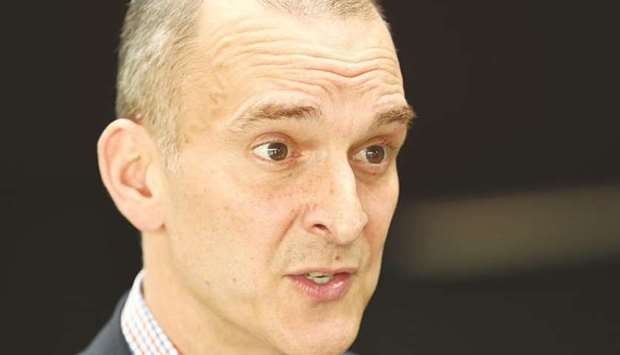United States Anti-Doping Agency chief Travis Tygart hopes the threatened withdrawal of US government funding from the World Anti-Doping Agency could force the global watchdog into long-called for reforms.
The prospect of the United States halting its annual $2.7mn payment to WADA edged closer to becoming reality this week after the White House’s Office of National Drug Control Policy (ONDCP) received authorisation to halt WADA funding from a key US congressional committee.
The authorisation came just weeks after an explosive ONDCP report which recommended withholding US funding from WADA if the agency failed to implement governance reforms. WADA subsequently rejected the ONDCP’s assessment in a strongly-worded rebuttal, accusing it of containing “multiple inaccuracies, misconceptions and falsehoods.”
USADA chief, however, Tygart has defended the ONDCP’s summary, describing it as “absolutely accurate...it paints a realistic, non-political picture.”
“The ONDCP asked for athletes to be given a voice, independence at the table with the removal of sports federations from the governance side, and then fair representation,” Tygart told AFP.
“What’s great is that the United States is clearly serious about reform and is willing to seek authority from Congress to withhold the money. That would have a devastating impact on WADA. Nobody wants that to happen.
“But the promises of reform have been unfulfilled. Athletes are frustrated and governments who are paying attention are frustrated.”
The director of the ONDCP, James Carroll, sent a letter to WADA President Witold Banka on July 6, reiterating that US authorities were serious about stopping funds in the absence of reform.
“It is my hope that it does not come to this and instead we can find a way to work together to improve the integrity of international athletic competitions for the benefit of all athletes and countries,” Carroll wrote.
Tygart said USADA was prepared to face the consequences if WADA responded to any future funding withdrawal by expelling the US agency from its ranks.
“We don’t what that to happen. We want a strong independent WADA. But WADA made it clear in its response that they’re going to retaliate if the money stops and they’re going to kick US out of WADA,” Tygart said.
“At the end of the day, the US doesn’t have a seat on the (WADA) executive committee so it’s not going to matter. We hope they don’t do something else to us such as open up a non-compliance claim.
“But there’s no real loss because we don’t have representation as things stand today.”
USADA has long been critical of the influence of the International Olympic Committee (IOC) in WADA’s corridors of power, believing that the presence of so many IOC members in key positions prevents the global agency from acting independently.
The IOC, which contributes half of WADA’s funding, also has half of the seats on the agency’s powerful executive committee, which has no representation from the United States.
“You can’t promote and police effectively at the same time,” Tygart said.
“It’s common sense. You don’t have the mafia kingpin sitting on the police board, for obvious reasons.” Tygart said a recent investigation by Richard McLaren into the International Weightlifting Federation, whose former president Tamas Ajan was forced to step down following allegations of corruption, vote-buying and covering up positive drug cases, was proof of the need to reform.
“That all happened on WADA’s watch. McLaren paints a picture of a failed system,” Tygart said. “And those of us who care want to see it fixed.”

Travis Tygart
